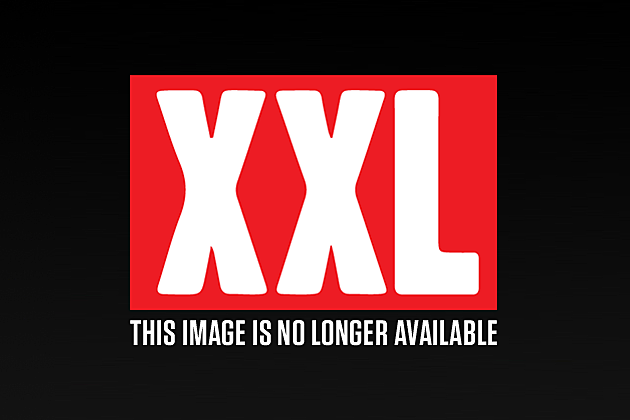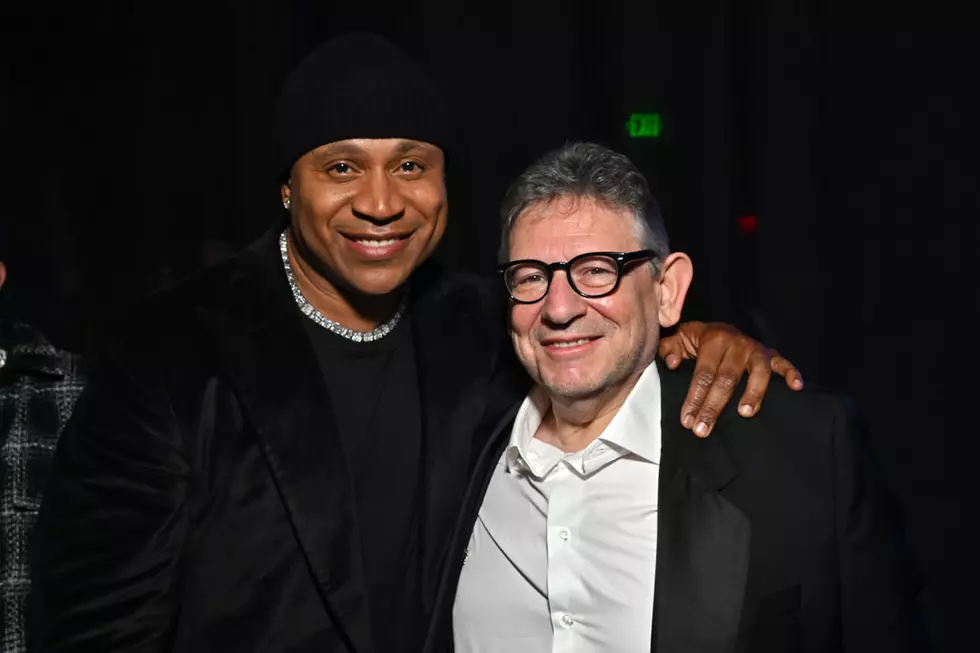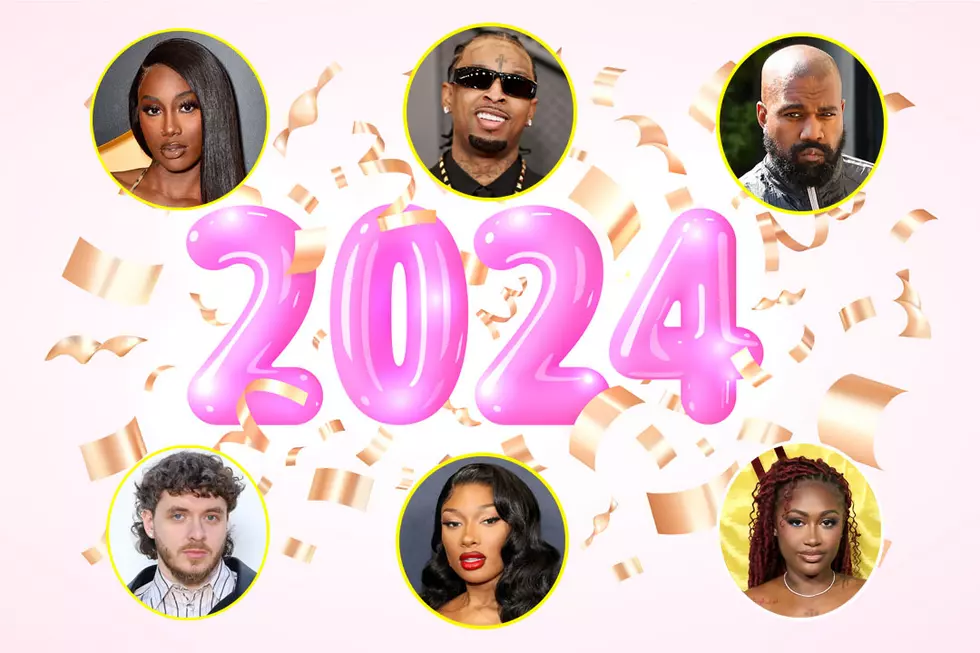
42 Star Chadwick Boseman: “Jackie Robinson is Obama Back in 1947″
42, the biopic of game-changing baseball great Jackie Robinson, opens in theaters April 12. Written and directed by Brian Helgeland, the film stars Chadwick Boseman as Robinson and Harrison Ford as Branch Rickey. Exploring the story of how Rickey, then the President of the Brooklyn Dodgers, made history by bringing the first African-American—Robinson (#42)—to Major League Baseball in 1947, 42 recounts Robinson's spectacular career, the public swirl of racist outcry, and heroic response to bigotry that changed baseball forever.
In a modern-day addition to the production, Jay-Z’s “Brooklyn Go Hard” is featured in 42’s trailer. While it initially drew some criticism as being a misguided choice for a film set in the 1940s, hip-hop fans may recall some of the track’s lyrics, which are arguably tailor-made for the production:
"I father, I Brooklyn Dodger them,
I jack, I rob, I sin,
aw man, I’m Jackie Robinson,
’cept when I run base, I dodge the pen.
Lucky me, luckily they didn’t get me,
now when I bring the Nets,
I’m the black Branch Rickey."
XXL recently caught up with the film’s leading man to talk about his role in 42, his love of hip-hop and what fans will likely take away from the Jackie Robinson story. —Katie Moore
How did it feel to play such a huge figure?
I was waking up every morning during the course of shooting vibrating. You know? Literally, I was vibrating. So I was honored and, you know, it just felt like one of those things that you’re called to do, that you’re supposed to do. At the same time, it can be a little intimidating. But when you wake up in the morning vibrating, you just kinda go with it.
At this point, you’re mostly known for your TV roles. Do you see this film as a turning point for your career?
Well, let’s hope so [laughs]. I don’t really know, I mean, the best way for me to say it is that I’m excited about what we did and I’m excited about people seeing it. I know that it’s going to put me in people’s eyes and minds and mouths much more than before. What I’m not exactly sure about is how it will work, how the rest of my career in Hollywood will match up in terms of the body of work and what I want to do and what’s available to me. That I don’t know.
What are the big differences between doing TV and film, and do you prefer one or the other?
I like both, and I actually love theatre as well. It’s a different process only because you have more time in film, in most cases than you do in TV. In TV, you’re basically shooting an episode in 10 to 14 days; 14 days is a luxury situation. And in film, you have anywhere from a month to three months, or it can be even longer than that, depending on what the production is. So I think it’s about the amount of time you’ve got to spend on a story.
But TV at this moment, with a lot of the cable shows that exist, you can tell stories in the same way you used to be able to tell film stories, but over a longer period of time. So you have your HBO, your Showtime shows are almost like long, 24-hour films or 13-hour films. And I like that idea.
How did you train for the role? Do you have baseball experience?
We played baseball five days a week; I had baseball practice. It wasn’t like my baseball coaches had ever done a movie before, so they didn’t know how to just focus on, "You have to do this play on page 52, you slide in and…." You know, it was nothing like that. It was baseball practice about learning to play a game—they trained me the same way they trained the players in their past. So it was batting practice, fielding, base running, running, anything you would normally do, along with a conditioning session in the afternoons. So it was two a day.
You’ve said that you hope the movie will inspire more African-Americans to take up baseball. Do you also think that young people interested in music, particularly hip-hop, will take inspiration from the film?
I don’t think the film really has limitations in terms of age or gender or race. I think you’ve seen the little boy in the film, Ed Charles, and I actually met the grown Ed Charles. The way that he looks up to Jackie Robinson...I’ve seen little boys come to the film, and they’re walking out practicing their swing. And I’ve seen professional football players cry coming out of the movie. Women love the movie just as much as men.
So I definitely think that the hip-hop generation has maybe been pulled into it because of the Jay-Z music, but when they get into it, I think they’re gonna see the older version of what they’ve seen in their time. It’s Obama back in 1947, so they’re gonna recognize the significance of the moment, they’re gonna be able to compare a parallel with what they’ve seen in their own time.
Has hip-hop music or culture influenced you as a writer, actor and director?
Oh, absolutely. What I love about hip-hop is that it doesn’t have any limitations, yet everyone wants to place limitations on it. But it doesn’t have limitations, because it’s pretty much the only music that can pull from any culture it wants to. Because of the idea of the turntable—the turntable as the drummer, and the drummer as sort of the jeli or the griot, the storyteller, and the thing that can make things move. So because of that, it can comment. You can do a trailer and have Jay-Z’s music, because Jay-Z is already pulling from the past. So you can’t say, "You can’t use that music because it’s from this time period," because it’s actually from that time period. For me, it’s also something that gets me motivated, like I use it before scenes. I have listened to some hip-hop songs before I did some things as Jackie Robinson. So I think it’s actually unfortunate that people place limitations on hip-hop based on culture or race.
More From XXL









